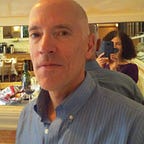Book Readers Live Longer
Does book reading really benefit health?
A recent study found an association between the reading of books and longevity. Compared to people who read no books, those who did experienced a 20% reduction in mortality.1
Is this effect real, that is, not mediated by other factors that conduce to both book reading and longer life? Genes, perhaps?
It’s well known, for example, that people with higher IQ tend to live longer, and these people could be expected to read more books.
To test whether reading books had a direct effect on longevity, the authors adjusted “for relevant covariates including age, sex, race, education, comorbidities, self-rated health, wealth, marital status, and depression”.
Adjusting for sex is important, since women live longer, and they read more books.
Education, wealth, and marital status are all proxies for intelligence. People with greater intelligence tend to get more formal education, have a higher income and greater wealth, and to be married.
The 20% reduction in mortality was seen even after adjusting for all of these factors.
Previous studies found that reading may have survival benefit, while others found no effect. The authors of the present paper conjectured that reading of books, as opposed to periodicals or other reading material (cereal boxes?) could have a protective effect. And they found that it did.
Cognitive effects of reading books
The authors “speculated that books engage readers’ minds more than newspapers and magazines, leading to cognitive benefits that drive the effect of reading on longevity.”
They say that the effects of reading books come from two sources.
- “Deep reading”, a type of cognitive engagement which draws connections to other parts of the book, to other books, and to the world.
- Books promote empathy and social perception, cognitive processes that they say are associated with greater longevity, cognitive impairment being associated with lower longevity.
The survival effect of reading books was nearly the same for
- men, hazard ratio 0.81, vs women, HR 0.80
- health status: >4 comorbidities (illnesses/symptoms), HR 0.68, <4 comorbidities, 0.84
- education: high school or less, 0.81; at least some college, 0.79
To my mind, the different hazard ratios between healthy and non-healthy persons, 0.68 vs 0.84, is significant. Non-healthy people showed a greater reduction in death rates from reading than did healthy people, which seems to show a genuine beneficial effect of reading books on health.
The authors conclude that improved cognition, or more cognitive immersion, is behind the effect of book reading.
Books were significantly more protective than reading periodicals.
Of interest, actual learning — as it’s usually construed — probably played little part in the mortality difference, since, according to the authors, 87% of book readers read mainly fiction. In fact, given the proportion of people reading fiction, there seems to be little evidence that reading non-fiction helps — unfortunately for me, because that’s almost all that I read anymore.
The average person over the age of 65 in the U.S. watches a whopping 7 hours a day of television.
If they spent even an hour or two of that time reading books, that could improve their health and lifespans.
I am forced to conclude, given the data supplied by the authors, that the effect of reading books is real. However, I’m not qualified to have a crack at their statistical models, so if any of you readers doubt the conclusion, you’re welcome to have a go at it.
Conclusion
Read books, don’t read periodicals or social media or watch TV for the improvement of your health. Reading books may be especially important the older you are, since improved cognitive function and/or more cognitive engagement seem to be behind the benefits.
Come to think of it, writing books probably has a similar advantage.
You can start with a work of non-fiction that will genuinely stimulate your brain cells, Dumping Iron.
For more of my contrarian takes on health, see my site, Rogue Health and Fitness.
